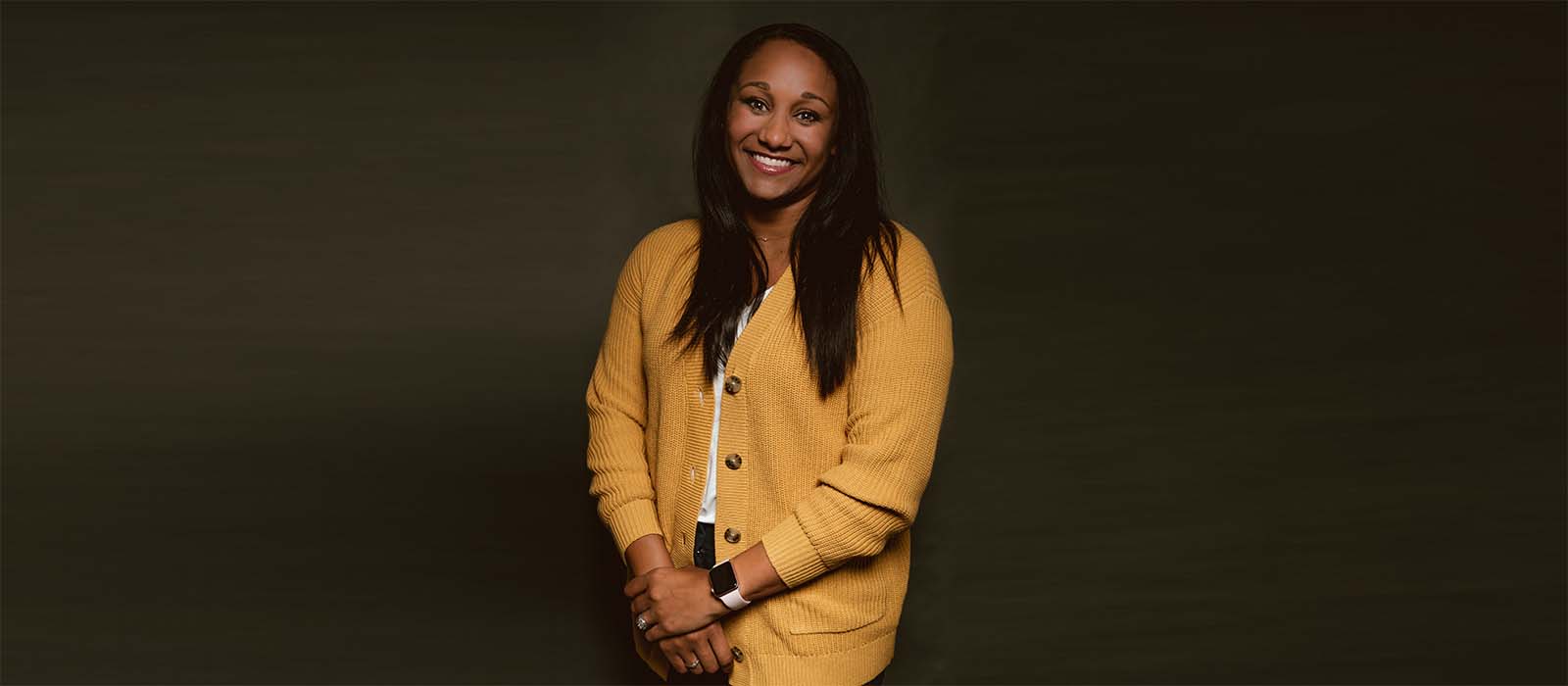What is the story related to mental health, suicide, and/or resilience that you’d like to share?
Goodness. What story do you want? I am 36 years old and I was just diagnosed with attention deficit hyperactivity disorder (ADHD). I know how a lot of people picture ADHD—a hyperactive young boy who can’t sit still and focus in school, right? Wrong. It is so much more than that. I am a mental health therapist, and even I didn’t realize the extent of how debilitating the disorder can be.
I first started questioning if I had ADHD when my husband pointed out that I was never able to clean one area at once. I would bounce from room to room getting distracted by something else that needed to get done. That’s how I’ve always been. I never thought anything of it. But then I started paying attention at work. I did the same thing there. I started researching symptoms of ADHD in women. One of the first things I read was how ADHD can be frequently missed or misdiagnosed in women, with many “slipping through the cracks.” Interesting. Then I looked at the symptoms: inability to shut out sounds and distractions, overwhelmed in stores or crowded places, forgetfulness, mood lability, impulsiveness (including impulsive shopping), forgetting names and dates, easily distracted and disorganized, low tolerance for frustration (explains my road rage), excessive activity or restlessness, just to name a few. I met them all.
All of a sudden it felt like my adult life was making sense. I don’t know how many times I told someone, usually my husband, “I forgot.” It felt like a bad excuse, but it was true. Loud noises have always overwhelmed me. In a room with a lot of stimulation it was like I could hear it all at once but never make sense of any of it. I would find myself snapping if something was said or done that I didn’t like. I felt like I could never control that emotion and often felt terrible for getting mad at my kids or my husband while also never quite knowing where the reaction came from. I was overwhelmed constantly. I could take one look at the list of things I had to do and instead of jumping in, I would just shut down. My procrastination has always been a joke to me, but now I know it’s actually a symptom. Being on time is an accomplishment for me. I thought I inherited that from my parents—turns out that is also a symptom.
Finally being able to put a name to all of the things that I thought were just “wrong” with me has been relieving. I now know what the source of the symptoms are, and I know there are all caused by one thing. My executive functioning doesn’t work like other peoples’. It makes things harder for me, but now I know that. Far too long I felt as though I was failing as a wife, mother, and as a person. But now I know that’s not true. I feel it has made me a better therapist as well. I have been able to recognize other people in the same situation. For years I thought it was my anxiety, but I know it is so much more than that. The name ADHD is very deceiving—it’s not just an inability to focus. It’s an executive functioning disorder that impacts your entire life.
What resources have helped you to address this challenge?
I first went to see a psychologist for testing. I wanted to make sure that I got a formal diagnosis and didn’t just try medication to see if it helped or not. After that I saw a mental health nurse practitioner who prescribed me a long-acting ADHD medication. Before I was diagnosed, I had naturally started adapting to difficulties in my life such as placing things where I can see them so I don’t forget and making lists to keep things organized. I continue to do that now. I have also started reading books, listening to podcasts, and watching Tik Toks (yep) to get more information on ADHD. Some of the information is researched based, while other information is coming directly from other women sharing their experiences. It has been so helpful. Every day I’m learning new information about myself.
Based on your experience, how can we work to build resilience in ourselves, our loved ones, and in our communities to better face life’s challenges?
Communicate and educate. We spend a lot of time passing judgment. Can you imagine how powerful it would be if instead of judging, we communicated with each other? Communicate our wants, our NEEDS, how we can be of help, and communicate our stories. I feel that resilience starts when we can look within and identify what we need for ourselves to thrive. Once we can get ourselves in a good place, then we are able to look forward and help/support others.
What is one thing related to mental health, suicide, or resilience that you wish everyone could understand?
Mental health affects everyone. Remember, there is help, and there is hope.
